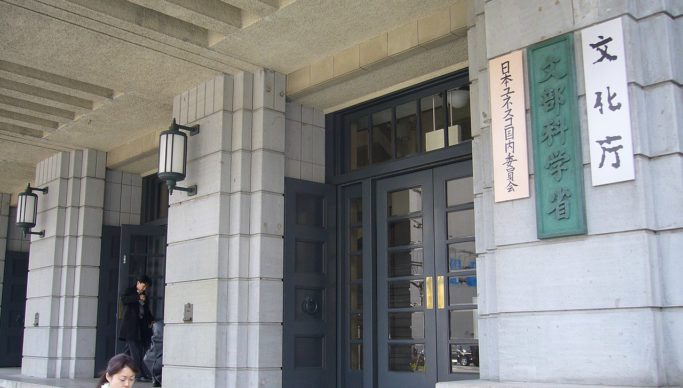
Japan’s Aim to Disband Unification Church Obscures Longtime Political Rivalries
- By Geoffrey Peters --
- 18 Oct 2023 --
As the Unification Church defends itself in response to an October 13 request by the Japanese government for a court order to strip the institution of its religious corporation status, the contentious and widely underreported political roots of the battle are bound to come to the fore.
Although the Unification Church has rightly characterized the government’s action as an infringement on both religious freedom and human rights, the largely untold story of the church’s persecution dates to a political rivalry between one of its anti-Communist affiliates and a network of lawyers tied to the Japanese Communist Party—one of the most influential in any democratic nation.
Nobuo Okamura, the chief of the Japanese arm of the Unification Church’s legal affairs department, expressed strong disapproval of the Japanese government’s request at an October 16 news conference in Tokyo. The government’s petition is “extremely disappointing and regrettable,” he said, adding: “We believe the request for a dissolution order is a serious development not only for freedom of religion but also human rights.”
The Japanese Ministry of Education, Culture, Sports, Science and Technology submitted its request for a court order, after what it said was an extended investigation into the church following the assassination of former Prime Minister Shinzo Abe in July 2022.
The investigation was prompted by allegations made by the suspected shooter, Tetsuya Yamagami, who claimed that he fatally shot Abe because he believed the politician had ties to the church, which was established by the Reverend Sun Myung Moon in South Korea in 1954 and is officially recognized in Japan as the Family Federation for World Peace and Unification.
Yamagami, who has been indicted on murder and firearm charges, held the church responsible for financially burdening his family due to his mother’s excessive donations as a member.
“Clearly, Abe and the Unification Church were the victims in a crime whose perpetrator hated the movement founded by the late Reverend Moon, and had interacted on social media with its anti-cult opponents,” wrote Massimo Introvigne, an Italian sociologist, in a December 2022 article in Bitter Winter, a magazine on issues surrounding religious liberty and human rights.
“However, in an extraordinary reversal of both truth and fairness, the Unification Church was presented as somewhat responsible for the crime,” added Introvigne, founder and managing director of the Center for Studies on New Religions, an international network of scholars specializing in new religious movements.
To get to the bottom of the controversy, it is necessary to refer to the International Federation for Victory Over Communism (IFVOC). Created in 1968 by the Reverend Moon, it went on to mobilize thousands of volunteers who played an important role in the 1978 defeat of a communist candidate in gubernatorial elections in Kyoto, a decades-old leftist stronghold at the time.
The IFVOC is the centerpiece of a series of investigative articles by Masumi Fukuda, a Japanese journalist Introvigne cites in his Bitter Winter article.
While not everyone who opposes the Unification Church in Japan has leftist leanings, emphasizes Introvigne, what Fufkuda “proves is that the anti-Unification-Church network of lawyers was founded within a Socialist organization with Communist ties, and was established with the stated attempt of combating IFVOC and its anti-Communist activities by destroying its parent organization, the Unification Church.”
The Japanese government claims that its investigation has determined that the church’s activities, including fundraising practices that purportedly coerced followers into making excessively high donations, were in violation of the 1951 Religious Corporations Act.
Religious groups in Japan are granted the status of “religious corporation” under the basis that they will make societal contributions by providing spiritual guidance and educational services to the broader public as a means of making positive contributions to society.
The law permits Japanese courts to order the dissolution of a religious organization if it has engaged in an act that is “clearly found to harm public welfare substantially.”
The matter is now before the Tokyo District Court, which is expected to make a judgment based on the evidence provided by the government, according to an October 14 CNN news report that cited Japan’s public broadcaster NHK.
This marks the third instance in which the Japanese government has pursued a dissolution order for a religious organization accused of breaching the Religious Corporations Act, which applies to as many as 180,000 religious corporations in the country.
The government also attempted to dissolve the Aum Shinrikyo cult, whose members perpetrated a deadly sarin gas attack on the Tokyo subway system in 1995, resulting in numerous fatalities and injuries.
Additionally, a temple known as Myokakuji faced dissolution efforts due to allegations of priestly fraud. In both cases, the courts sided with the government and granted the dissolution orders.
The Unification Church has consistently rejected any allegations of misconduct. “We contest [the allegations] on all fronts,” Nobuya Fukumoto, a lawyer representing the Unification Church, told the October 16 news conference, refuting the government’s allegations that the church misused its religious organization status to improperly acquire property and departed from its initial intended purpose.
Fukumoto asserted that the donations considered questionable are religious in nature and that they align with the organization’s religious mission.
At a press conference October 16, the church provided a preview of how the it intends to present its defense while the Tokyo District Court evaluates the government’s request behind closed doors, a process that might extend for several months.
Okamura noted that the government suddenly altered its interpretation of the legal criteria required to initiate an official investigation, a crucial step before requesting a court order to revoke a group’s religious organization status.
In the event of dissolution, the Unification Church would forfeit its designation as a religious corporation in Japan and consequently lose certain tax privileges. Nevertheless, it would retain the ability to function as a regular corporate entity.


















